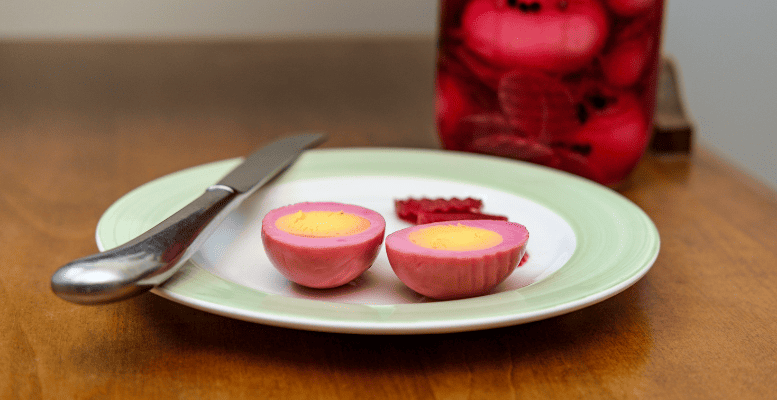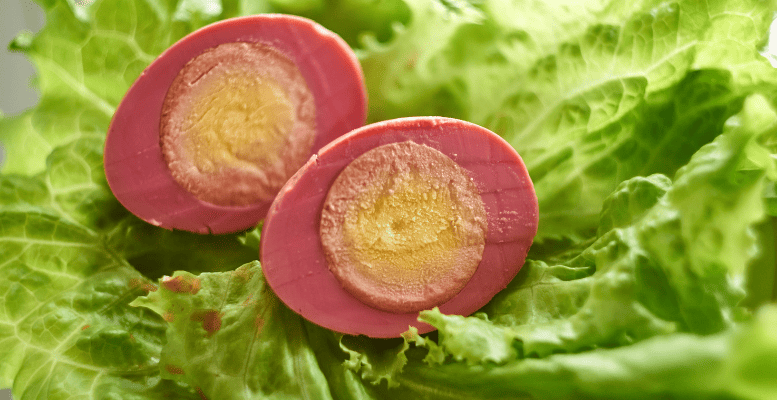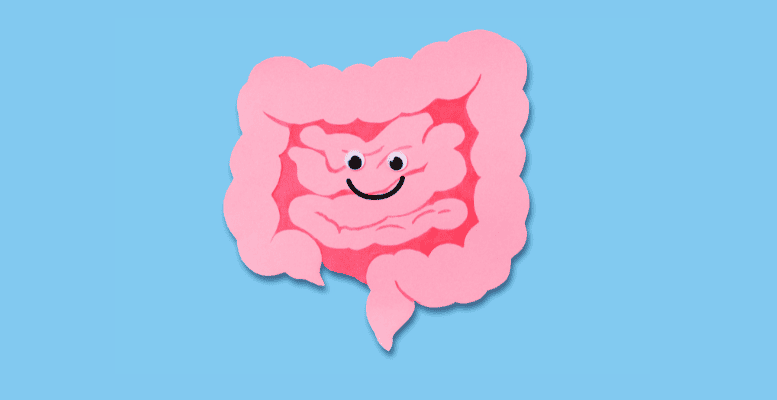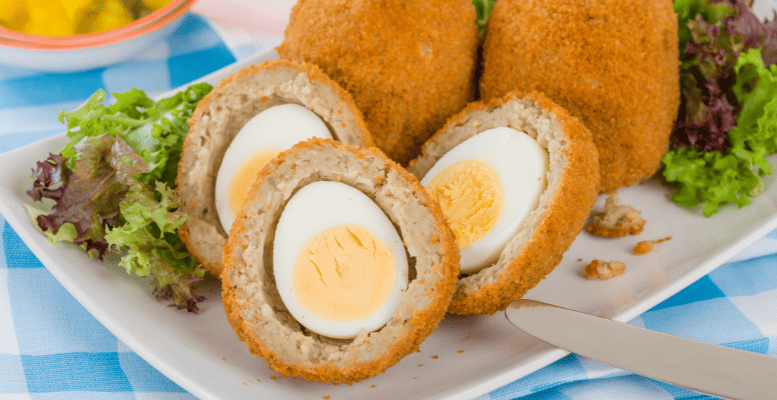Are you looking for a nutritious and delicious addition to your diet? Look no further than pickled eggs! This post delves into the world of pickled eggs, a traditional snack that is not only mouth-wateringly tasty but also packed with surprising health benefits. You may be wondering are pickled eggs healthy? I love pickled eggs but I haven’t met too many of my clients that do. Get ready to unravel the secrets behind this humble pantry item and learn why it deserves a spot in your healthy diet.
What Are Pickled Eggs?
Pickled eggs, a staple in many cultures, have an exciting history and a unique preparation process. Historically, pickling was a method used to preserve foods for extended periods, especially before the arrival of refrigeration.
Eggs, perishable items, were often pickled to extend their shelf life. This practice can be traced back to several ancient civilizations, where preserving food was crucial for survival when fresh produce was scarce.
The pickling process involves hard-boiling eggs and immersing them in vinegar, salt, and various spices. The vinegar, a natural preservative, creates an acidic environment that inhibits the growth of bacteria, thereby preserving the eggs.
Herbs like dill, garlic, and peppercorns are often added for flavor. The eggs are typically left to soak in this mixture for several days to a few weeks, allowing the flavors to infuse into the eggs.
Over time, this process not only preserves the eggs but also imparts a tangy taste and a unique texture, transforming them into a flavorful snack or an addition to various dishes.
While pickled eggs have a rich history and are savored in many parts of the world, they may not be suitable for everyone due to dietary restrictions and potential allergies. Understanding individual health needs is crucial when adding pickled eggs to one’s diet.
When incorporating pickled eggs into your diet, it’s essential to consider individual health factors and dietary preferences.

Nutritional Profile of Pickled Eggs
Pickled eggs are not just a savory snack but also a nutritional treasure trove, especially regarding their protein, vitamin, and mineral content. A single pickled egg is a good source of high-quality protein, vital for muscle building, repair, and overall body function.
This protein is complete, containing all nine essential amino acids the body cannot synthesize independently. Compared to other protein sources, such as nuts or legumes, pickled eggs provide a more concentrated amount of protein, making them an efficient choice for protein intake.
Regarding vitamins and minerals, pickled eggs are rich in several vital nutrients. They are a significant source of Vitamin D, essential for bone health and immune function, and B vitamins, particularly B12, crucial for nerve health and energy production.
They contain minerals like selenium, which plays a role in antioxidant defense, thyroid function, and phosphorus, essential for bone health.
However, it’s important to note that the pickling process can affect the nutrient profile. For instance, while vinegar can enhance the bioavailability of certain minerals, it might also reduce others.
Pickled eggs remain nutrient-dense, providing a well-rounded array of vitamins and minerals that benefit a wide range of bodily functions. When considering protein sources in your diet, pickled eggs offer a unique combination of high-quality protein and essential nutrients, setting them apart from many other protein-rich foods.
Health Benefits of Pickled Eggs
The health benefits of pickled eggs reveal various ways they can positively impact your well-being. Beyond their delightful taste, these eggs provide several nutritional advantages that can contribute to a balanced and healthy diet.
Their unique combination of proteins, vitamins, and minerals and the health benefits derived from the pickling process make pickled eggs more than just a tasty treat.
Pickled eggs are known for supporting muscle health, boosting energy levels, and aiding in weight management. The proteins in eggs are highly bioavailable, meaning the body efficiently utilizes them.
This makes pickled eggs an excellent choice for post-workout recovery or as a meal protein boost. Additionally, the vinegar used in the pickling process may positively affect blood sugar regulation and cardiovascular health. Some studies suggest that vinegar can improve insulin sensitivity and lower blood pressure, though more research is needed.
The probiotic potential of the pickling process, especially when using traditional methods, can contribute to a healthy gut microbiome.
A balanced gut microbiome is crucial for efficient digestion, nutrient absorption, and overall immune system function. Lastly, the nutrients in pickled eggs, such as Vitamin D and B12, play vital roles in maintaining bone health, supporting neurological functions, and ensuring overall cellular health.

Boosts Protein Intake
Protein is a critical macronutrient in any diet, vital for building and repairing tissues, making enzymes and hormones, and supporting bone, muscle, cartilage, and skin health.
Pickled eggs stand out as an excellent source of high-quality, complete protein, containing all nine essential amino acids the body can’t produce alone. This makes them particularly valuable in various diets, from athletes looking to build muscle to individuals seeking to maintain a healthy weight.
One pickled egg can provide a significant portion of the daily recommended protein intake, making it an efficient and convenient way to meet these nutritional needs.
This is especially beneficial for those with higher protein requirements, such as athletes, people engaged in heavy physical work, or those recovering from illness or surgery. Unlike other high-protein foods, pickled eggs are low in carbohydrates and can be suitable for those following low-carb or ketogenic diets.
The ease of including pickled eggs in meals — whether as a standalone snack, part of a salad, or an accompaniment to a main dish — makes them a versatile protein source.
The protein-rich nature of pickled eggs and their other nutritional benefits position them as an advantageous addition to a health-conscious diet.
Promotes Digestive Health
The benefits of pickled eggs extend beyond just protein and nutrient provision; they also play a significant role in promoting digestive health. This is primarily due to two key factors: the probiotics that can be present in the pickling process and the vinegar used in pickling the eggs.
Traditional pickling methods can foster the growth of beneficial bacteria known as probiotics. These probiotics are essential for maintaining a healthy balance in the gut microbiome.
A robust and diverse gut microbiome is crucial for efficient digestion and nutrient absorption and affects immune system functioning. By contributing to this microbial balance, pickled eggs can help support overall gut health.
The vinegar in pickled eggs is not just a preservative; it also has health-promoting properties. Vinegar has been associated with improved digestive health in several ways. It can help regulate stomach acidity, vital for proper digestion and nutrient absorption.
Vinegar has been found to have a prebiotic effect, feeding and nurturing the beneficial bacteria in the gut. This can lead to improved gut flora balance, enhanced digestion, and a reduced risk of digestive issues.
Together, the probiotics potentially present in traditionally pickled eggs and the digestive benefits of vinegar make pickled eggs a valuable food for promoting digestive health. Regular consumption, as part of a balanced diet, can contribute to maintaining a healthy digestive system, aiding overall well-being and health.

Incorporating Pickled Eggs into Your Diet
Are you thinking of adding a tangy twist to your meals with pickled eggs? You’re in for a delightful culinary adventure! Pickled eggs are not just a bar snack; they can be a versatile and zesty addition to many dishes, adding flavor and nutrition.
Here are some creative ways to include pickled eggs in your meals and tips for making your own at home – it’s easier than you think and way more fun than watching paint dry!
To make your pickled eggs, you only need hard-boiled eggs, vinegar, salt, and your choice of spices – think garlic, dill, or even a spicy kick with some chili flakes. Combine the vinegar, water, salt, and spices in a pot and boil.
Then, pour this hot, salty mixture over the eggs in a clean jar. Seal the jar and let it sit in the fridge for a few days to a few weeks, depending on how patient or hungry you are. The longer they sit, the more flavorful they’ll be – an actual test of your willpower!
Recipes and Serving Suggestions
Let’s get to the fun part: using these tangy treasures in your meals! Here are some simple and delicious recipes
To incorporate pickled eggs into your diet:
- Pickled Egg Salad Sandwich: Mix a couple of pickled eggs and mix them with a bit of mayonnaise, mustard, and a sprinkle of paprika. Spread this on your favorite bread, add some lettuce, and voila! You’ve got yourself a sandwich that packs a flavorful punch.
- Spicy Pickled Egg Tacos: Slice pickled eggs into soft tacos with some shredded cabbage, a drizzle of sriracha, and a squirt of lime. It’s a fusion fiesta in your mouth!
- Pickled Egg and Avocado Toast: Mash an avocado on a slice of toasted bread, top with slices of pickled egg, a sprinkle of sea salt, and a dash of hot sauce. It’s the breakfast of champions (and late-night snackers).
- Classic British Pub-Style Platter: For a simple snack, serve whole pickled eggs with a side of sharp cheddar cheese, crusty bread, and a pint of your favorite ale. It’s like a trip to the pub without the dodgy karaoke.
- Pickled Egg Potato Salad: Give your regular potato salad a tangy twist by adding chopped pickled eggs. It’s a side dish with your guests asking, “What’s your secret?”
- Beet and Pickled Egg Salad: Slice pickled eggs and lay them atop a bed of mixed greens, roasted beets, and goat cheese. Drizzle with a vinaigrette for a salad that’s as pretty and tasty.
Remember, with pickled eggs, the world is your oyster (or, should we say, your egg?). Get creative, have fun, and enjoy the delightful tang they bring to your meals. Just be prepared for friends and family to egg you on for more of these delicious creations!

Are Pickled Eggs for Everyone?
While pickled eggs might seem to answer all life’s problems, they’re not for everyone. It’s like putting ketchup on ice cream – it might work for some adventurous souls, but it’s not a universal crowd-pleaser. When it comes to pickled eggs, there are a few dietary considerations and restrictions that one needs to keep in mind.
For starters, pickled eggs are, well, eggs. This might seem like stating the obvious, but it’s an essential fact for anyone who’s ever looked at an egg and thought, “Nope, not for me.” If you’re vegan or avoid animal products, then pickled eggs are about as suitable for your diet as a steak at a vegetarian buffet.
Potential Allergies and Dietary Restrictions
Let’s crack into the details of egg allergies and dietary preferences. Egg allergies are more common than finding someone who can resist a second helping of dessert. It’s one of the most common food allergies, especially in children.
Symptoms can range from a mild case of the sniffles to a full-blown, red-alert, all-hands-on-deck allergic reaction. If your body throws a fit whenever you come near an egg, it’s best to steer clear of pickled eggs. They might be delicious, but they’re not worth playing a game of immune system roulette.
And let’s remember our friends with dietary preferences. Some people give eggs a wide berth for health, ethical reasons, or “I just don’t like the taste” reasons.
For vegans and some vegetarians, pickled eggs are as off-limits as a penguin in the Sahara. And for those watching their sodium intake, tread carefully – pickled eggs can be as salty as a pirate’s language.
While pickled eggs might be the snack of the gods for some, they’re not a one-size-fits-all treat. Whether it’s due to allergies, dietary choices, or personal taste, it’s okay if pickled eggs aren’t your cup of tea (or jar of pickles). There are plenty of other fish (or snacks) in the sea!

Conclusion
In the grand egg experiment of life, pickled eggs stand out as a quirky yet surprisingly nutritious option. Whether you’re an enthusiast or just egg-curious, these tangy treats offer more than a unique taste – they’re packed with protein, vitamins, and minerals and even bring some digestive benefits (thanks, vinegar!).
But remember, they’re not everyone’s egg cup of tea, especially if you’re dealing with egg allergies or adhering to specific dietary restrictions.
From jazzing up your sandwiches to starring in your salads, pickled eggs are versatile enough to make regular meal appearances. And if you’re feeling particularly adventurous, why not try making your own? Just a warning – it might become an unexpected obsession once you start pickling.
But let’s not put all our eggs in one basket. While pickled eggs are a fantastic addition to many diets, it’s important to remember that balance is critical in a healthy lifestyle. So, enjoy your pickled eggs, but don’t turn every meal into an eggstravaganza.
Whether pickled eggs are your snack soulmate or an occasional guest star in your culinary adventures, it’s hard to deny their unique charm. They might not be the superheroes of the food world, but they’re more than just a sidekick. So, here’s to pickled eggs – the unsung, slightly tangy heroes of the snack world! 🥚🎉
This post may contain affiliate links which means I may receive a commission for purchases made through links. I will only recommend products that I have personally used! Learn more on my Privacy Policy Page.
